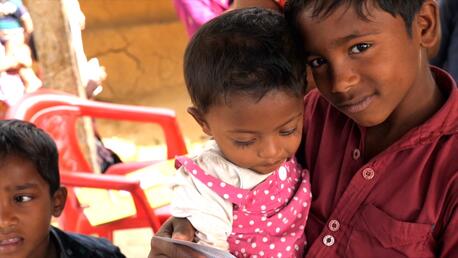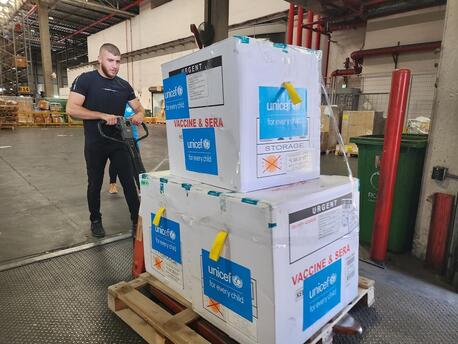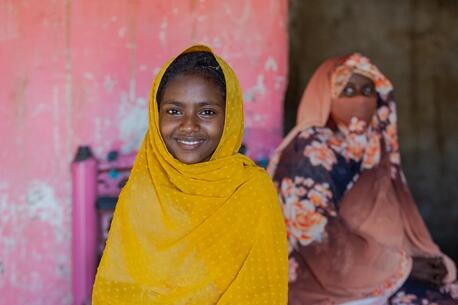
Cholera Crisis in Yemen: UNICEF's Race to Save Children
Cholera is preventable and treatable — yet 7,000 new cases are being reported in Yemen every day. UNICEF and its partners are working to contain the deadly outbreak — and get treatment to children who are dangerously dehydrated, before it's too late.
Above: In Sana’a, Yemen, a young child drinks an oral rehydration solution, a low-cost, high-impact intervention that UNICEF and its partners are rushing to provide as part of a joint emergency response to save children's lives during Yemen's cholera outbreak.
A deadly cholera outbreak is sweeping across Yemen, where two years of violent conflict have destroyed essential services, leaving 21 million people — 80% of the population — vulnerable and struggling to survive.
Poor sanitation, a lack of clean water and an overwhelmed, under-equipped health care system have helped the disease spread far and wide — nearly 330,000 suspected cases in just the last six weeks. More than 1,700 people have died from cholera-related causes since April.
Cholera is a highly contagious bacterial infection of the intestines that causes severe vomiting, diarrhea and dehydration. It is particularly life-threatening for young children, especially those who are malnourished. With famine looming as a result of the war, millions are already suffering from acute malnutrition, including more than 460,000 children under 5 who are at risk of starvation.
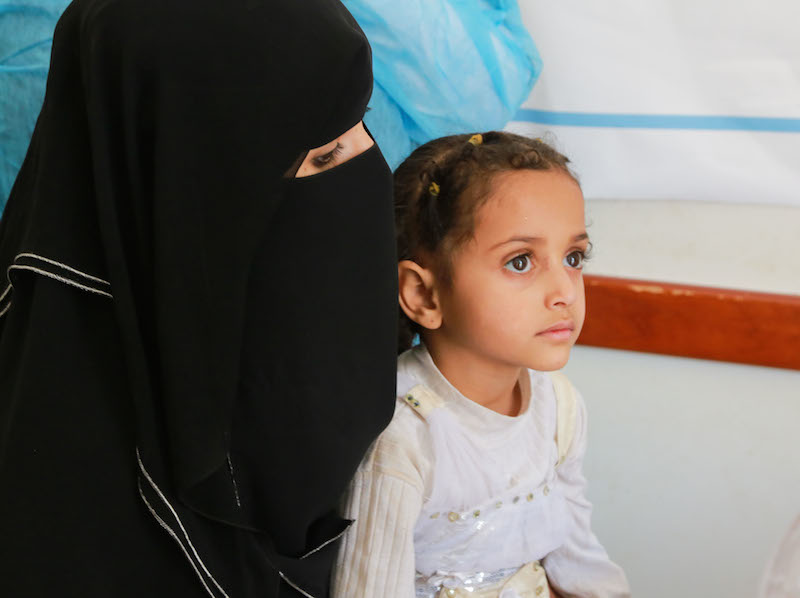
Reham, 10, one of hundreds of thousands of suspected cholera cases, is waiting to receive treatment at the UNICEF-supported Alsonainah Health Center in Sana’a, Yemen. © UNICEF/UN071659/Fuad
UNICEF and partners are working around the clock to detect and track the spread of disease and to provide clean water, adequate sanitation and medical treatment. Rapid response teams are going house-to-house to reach families with information about how they can protect themselves by cleaning and storing drinking water. In late June, three UNICEF charter planes delivered 36 tons of lifesaving medical and water purification supplies. "We are in a race against time," Dr. Sherin Varkey, UNICEF Deputy Representative in Yemen, said, noting that more airlifts will continue in the coming days.
We are in a race against time.
UNICEF and partners have already delivered more than 4 million packets of rehydration salts, 800,000 bags of intravenous fluids and related equipment to local health clinics, and are helping to set up additional treatment facilities around the country. But more assistance is needed to save and protect every child.
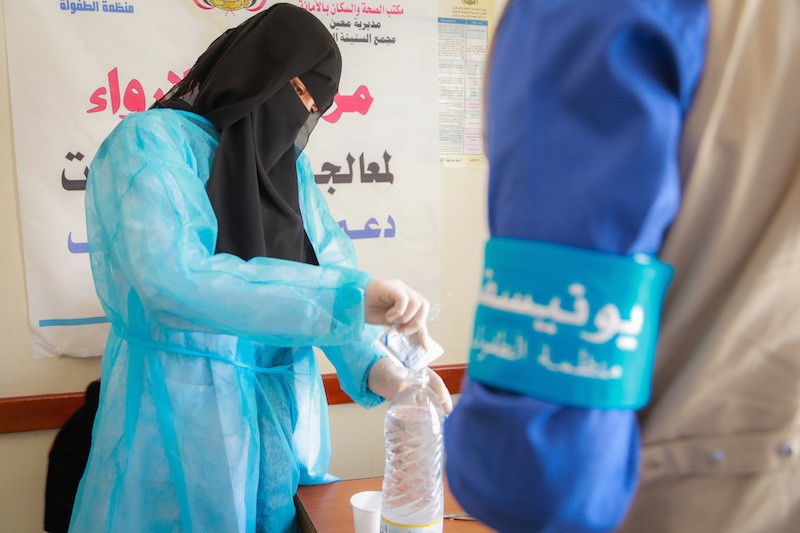
A health worker at a clinic in Sana'a prepares oral rehydration solution by mixing a packet containing sodium and glucose with clean water. UNICEF's emergency response teams are visiting health centers to make sure they are well stocked with supplies needed to treat cholera cases. © UNICEF/UN071658/Fuad
Help UNICEF protect children in Yemen and in other conflict-torn countries around the world.
HOW TO HELP
There are many ways to make a difference
War, famine, poverty, natural disasters — threats to the world's children keep coming. But UNICEF won't stop working to keep children healthy and safe.
UNICEF works in over 190 countries and territories — more places than any other children's organization. UNICEF has the world's largest humanitarian warehouse and, when disaster strikes, can get supplies almost anywhere within 72 hours. Constantly innovating, always advocating for a better world for children, UNICEF works to ensure that every child can grow up healthy, educated, protected and respected.
Would you like to help give all children the opportunity to reach their full potential? There are many ways to get involved.



